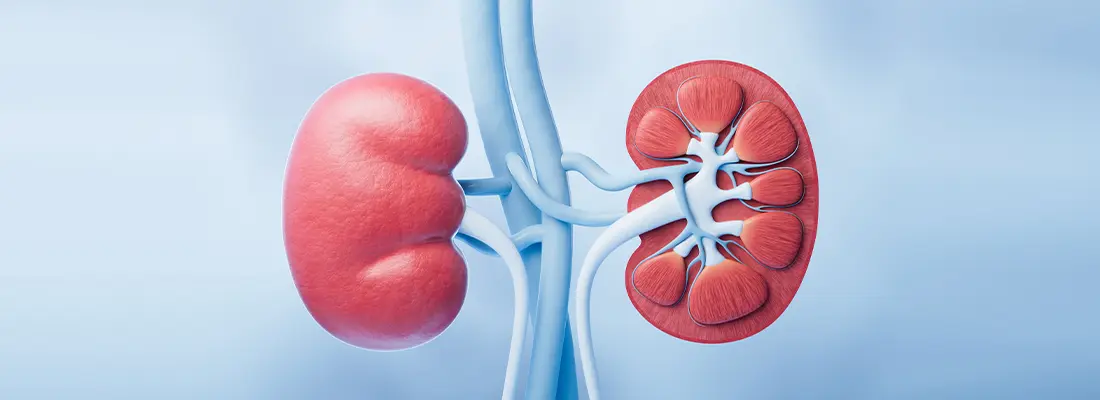Introduction
The question is IgA nephropathy genetic? remains unanswered for many. This condition involves the accumulation of Immunoglobulin A (IgA) in the kidneys, which can lead to inflammation and damage.
To learn more about the genetic aspects of this condition, continue reading the blog.
Is IgA Nephropathy Genetic? Causes
The IgA protein is a vital part of the immune system, but its abnormal accumulation in the glomeruli causes this disease. Although the exact mechanism is unclear, genetic predisposition plays a significant role, underscoring that IgA nephropathy is genetic.
Men are more frequently affected than women, and individuals with a family history are at greater risk of developing IgAN. This reinforces that IgA nephropathy is genetic while highlighting the influence of environmental triggers, such as infections, on disease progression. The disease occurs when immunoglobulin A (IgA) protein deposits accumulate in the glomeruli, the kidney’s filtering units. These deposits interfere with the kidneys’ ability to filter waste and fluids from the blood, which may lead to:
- Presence of protein and blood in the urine
- Swelling in the hands and feet (edema)
It affects individuals of Caucasian and Asian descent more frequently and is typically diagnosed in people aged between their teens and late 30s.
Is IgA Nephropathy Genetic? Understanding the Role of Genetics
Yes, IgA nephropathy is genetic, as research and clinical evidence strongly indicate. Research studies have uncovered numerous genes linked to the disease. These genetic factors contribute to both susceptibility and progression, often working in tandem with environmental triggers like infections.
Familial clustering and variations in prevalence across ethnic groups further emphasize the hereditary component of IgA nephropathy. For instance, over 10% of cases show a familial link, reinforcing the notion that IgA nephropathy is genetic. For individuals with a family history of IgAN, the risk of developing the condition is significantly higher. This genetic predisposition underscores the need for early screening and personalized treatment strategies for those at risk. However, not everyone with a genetic predisposition will develop the disease, as its manifestation depends on a combination of genetic and environmental factors. Moreover, many genes associated with IgAN are involved in immune regulation, confirming that IgA nephropathy is genetic. These genetic factors also play a critical role in disease progression when combined with environmental triggers.
Is IgA Nephropathy Genetic? Symptoms
IgA nephropathy progresses silently; hence, the question is IgA nephropathy genetic? often remains undetected for years. Symptoms for IgAN may include:
- Hematuria, the most common symptom
- Swelling in the hands, feet, or face
- Recurrent respiratory infections
- Intestinal issues
- Flank pain and low-grade fever
- In rare cases, dangerously high blood pressure
IgA nephropathy can often progress silently, with symptoms appearing gradually. Early detection and treatment are essential to manage the condition and prevent complications.
Is IgA Nephropathy Genetic? Diagnosis
Diagnosis involves a detailed medical history, physical examination, and specific diagnostic tests:
- Blood pressure monitoring
- Cholesterol testing
- Urine analysis for protein and blood
- Kidney biopsy to confirm IgA deposits
- Genetic Insights into IgA Nephropathy
Is IgA Nephropathy Genetic? Treatment
IgA nephropathy is a kidney disorder that requires effective treatment to manage symptoms and prevent long-term damage. The goal of treatment is to slow disease progression and reduce complications. It includes:
Medications
- ACE inhibitors: Control blood pressure and reduce protein loss in the urine.
- Corticosteroids: Reduce inflammation and scarring in the kidneys.
- Fish Oil Supplements: Help minimize kidney damage and inflammation.
- Statins: Lower cholesterol levels to reduce cardiovascular risks.
- IgA Nephropathy Clinical Trials: Clinical trials help explore potential treatments to improve outcomes and slow disease progression.
Lifestyle Modifications
- Dietary Adjustments: Dietary adjustments to reduce fat and cholesterol intake
- Quitting smoking: Consider nicotine replacement therapies.
- Physical Activity: Exercise regularly and maintain a balanced weight for overall health.
- Fluid intake: Avoid sugary drinks and excessive caffeine.
With appropriate medications and lifestyle changes, this condition can be managed effectively. Early intervention is key to preventing kidney damage and improving quality of life.
Is IgA Nephropathy Genetic? Complications
If left untreated, IgAN can lead to severe complications such as:
- Chronic Kidney Disease or Kidney Failure: IgAN can progressively damage kidney function, leading to CKD or kidney failure.
- High Blood Pressure: Kidney damage from IgAN can cause difficulty in regulating blood pressure, resulting in hypertension.
- Elevated Cholesterol Levels: As kidney function declines, elevated cholesterol levels can develop, increasing cardiovascular risks.
Timely diagnosis and treatment are crucial to preventing these complications and preserving kidney function. Effective management can help reduce the risks of long-term damage and improve quality of life
The Takeaway
Is IgA nephropathy genetic? Yes, IgA nephropathy can have a genetic component, with both hereditary and environmental factors influencing its onset and progression. Advances in identifying genetic markers have paved the way for precision medicine, allowing for more targeted therapeutic approaches. These developments hold promise for improving the management of the condition and offering better outcomes for individuals affected by IgA nephropathy.




